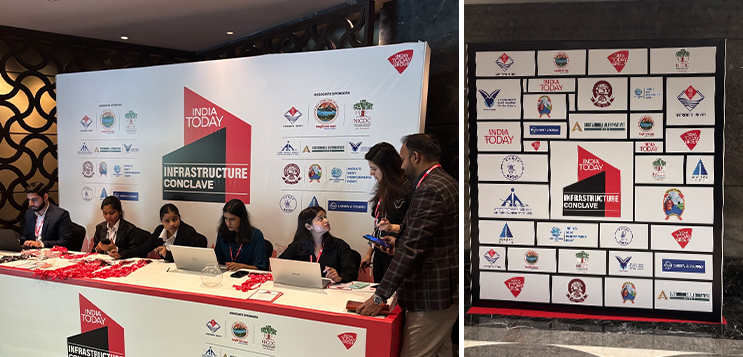
The India Today Infrastructure Conclave 2025 brought together industry leaders to address challenges and opportunities shaping India’s infrastructure. As a sponsoring partner, Sustainable Alternatives supported discussions on future-ready infrastructure that balances economic growth with long-term sustainability.
To achieve Viksit Bharat 2047, experts emphasized that government funding alone is not enough. While India has policy stability, predictable cash flows, and a long-term vision, disparate policies across states and sectors deter investors and slow development. Dr. P.R. Jaishankar, Managing Director of India Infrastructure Finance, called for greater transparency in concession clauses and project terms to attract private investments.
Aviation emerged as a critical sector in infrastructure building, as IndiGo CEO Pieter Elbers pointed out India’s geographic advantage, stating, “With 65% of the world’s population within a 5-6 hour flight from India, there is an opportunity to start building on that.” While Union Minister of Civil Aviation, K. Ram Mohan Naidu acknowledged India’s growth, he noted, “We are up to the mark when it comes to Asian countries…. But by global standards, we have to make a lot more progress.”
Union Minister of Ports, Shipping and Waterways Sarbananda Sonowal also joined the conclave for a special session on making ports and shipping industry ready for the future. He stressed that “If India wants to become the number one nation in the world by 2047, our ministry will have to play a very, very important role.” He highlighted how we have improved turnaround times at Indian ports, which now surpasses Australia, the US, and Germany.
Building on the topic, P.L. Haranadh, Chairman, Paradip Port Trust, noted that “60% of vessels in India’s fleet will need to be replaced in the next five years”, which he said, creates a major opportunity for country’s shipbuilding sector.
The discussions also focused on climate risk mitigation, as Neha Kumar, Head of South Asia Programme, Climate Bonds, stressed that “India’s Net Zero cannot be attained if we do not focus on resilience.” Linking infrastructure development with climate risk, Jagjeet Singh Sareen, Partner, Global Climate Change, Dalberg Advisors, warned that “Climate risks leading to disasters would cause $30 billion in annual infrastructure losses in India.” Ranjini Mukherjee, Director, Research and Knowledge Management at Coalition for Disaster Resilient Infrastructure, added that “Global annual losses from infrastructure damage due to climate risks are estimated at $763 billion”, excluding the losses caused from service disruptions.
Experts emphasized that expansion isn’t enough—climate resilience must be a priority in development projects. Ranjini Mukherjee pointed out that “Since 50% of the global infrastructure is yet to be built, if we embed resilience now, future infrastructure will be much more resilient.”
Prominent industry leaders, policymakers, and experts came together at the Conclave to shape discussions on India’s infrastructure future, with a clear takeaway—sustainability and resilience must be embedded in long-term planning. As a sponsoring partner of the event, Sustainable Alternatives reaffirmed its commitment to smart, climate-conscious solutions shaping the next generation of infrastructure.
